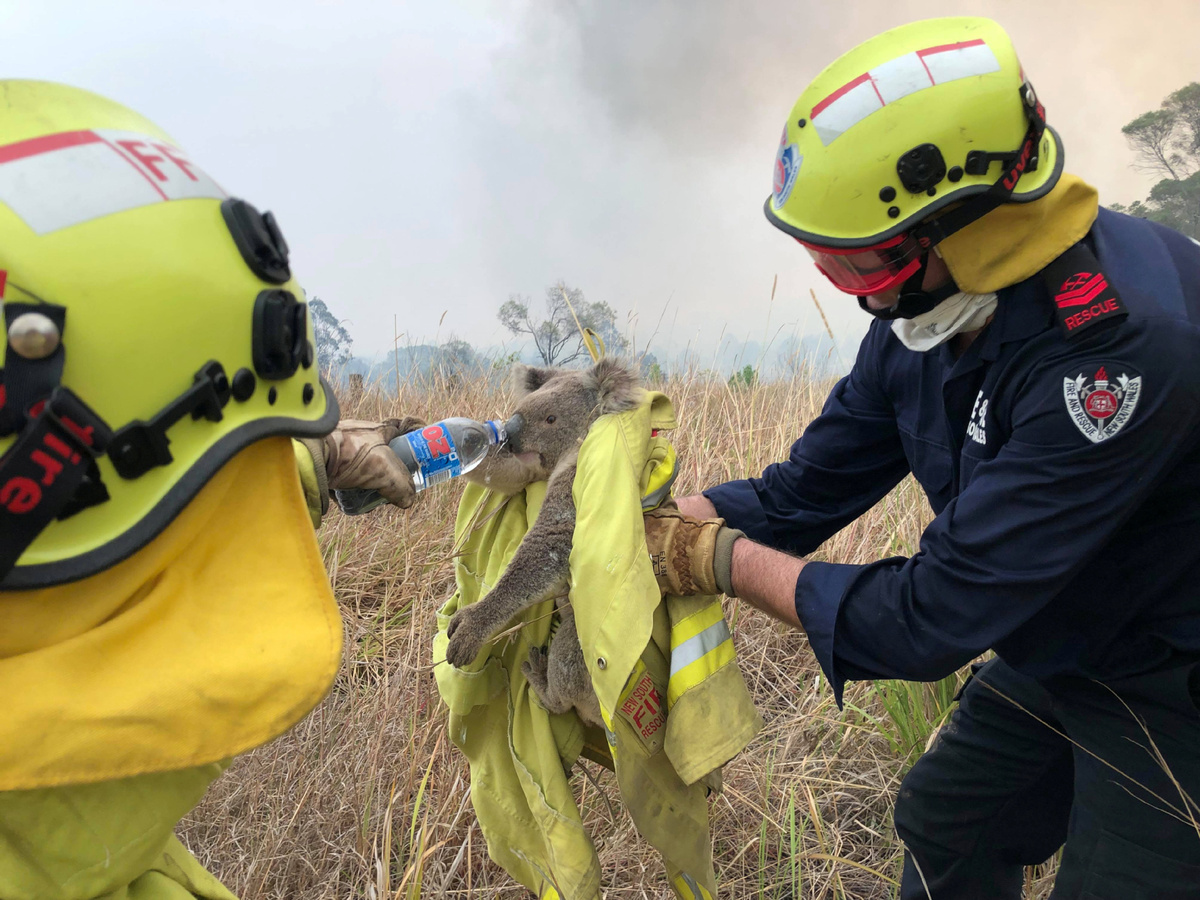Bushfires, drought and heat waves: Australia prepares for tough summer
China Daily | Updated: 2019-11-29 09:35

MELBOURNE - Australia's fire and drought-ravaged east will suffer continued hot and dry conditions this summer, increasing the chances of severe weather events, the country's weather bureau said on Thursday.
The Bureau of Meteorology warned the country could expect more heat waves and little rain in the east during the summer, which runs from December to February, following one of the driest springs ever.
"We've already seen significant bushfire activity during spring, and the outlook for drier and warmer than average conditions will maintain that heightened risk over the coming months," the bureau's head of long-range forecasts, Andrew Watkins, said in a statement.
Bushfires have left at least four people dead and destroyed more than 400 homes since the start of November. Fires are still burning in New South Wales, Victoria, South Australia and Queensland states.
Fire authorities have warned there is worse to come.
The forecast offered no relief to Australia's devastated farming sector, with the country's largest and most lucrative crop, wheat, facing the worst damage in the third straight year of drought.
Temperatures across most of the country are highly likely to be warmer than average during the day and night, the bureau said. "This outlook also means the risk of heat waves is increased," Watkins said.
Australia's shaky power grid has suffered blackouts over the past two summers as aging coal-fired plants crashed in the heat, just as power demand for air conditioners soared.
The dry spring and weak outlook for summer rains in the east were due mainly to warmer than average waters in the Indian Ocean off Africa, combined with cooler than normal waters off Indonesia.
"The key culprit of our current and expected conditions is one of the strongest positive Indian Ocean dipole events on record," Watkins said.
That would also delay the onset of the monsoon rains in tropical northern Australia to midsummer.
However, coastal areas of Western Australia were showing increased odds of wetter than average conditions, the bureau said.
Allan Orr, an expert on counterterrorism and insurgency, said in a recent interview published by The Sydney Morning Herald that the nation needs to ramp up investment in firefighting equipment, and called for the government to establish a specialized firefighting force within the Department of Defence.
Orr said that with the increased risk there should be a network of significantly more fire towers with water tanks, which could be linked to fleets of drones equipped with fire retardant.
"You could also have water bombs on pallets out of military aircraft seconded to domestic agencies, even active bombing to deoxygenate when cost-benefit protocols dictate," he said.
























